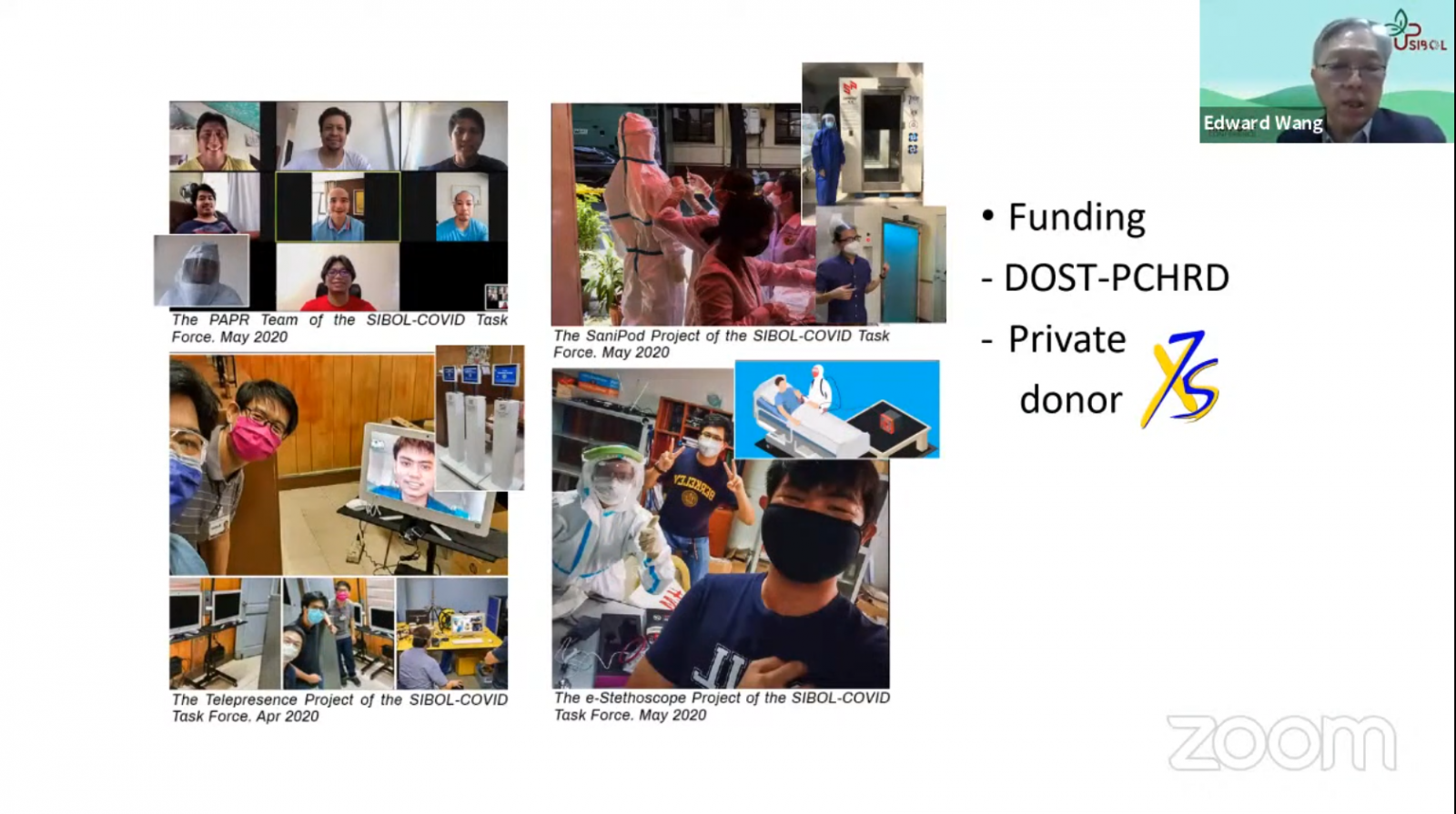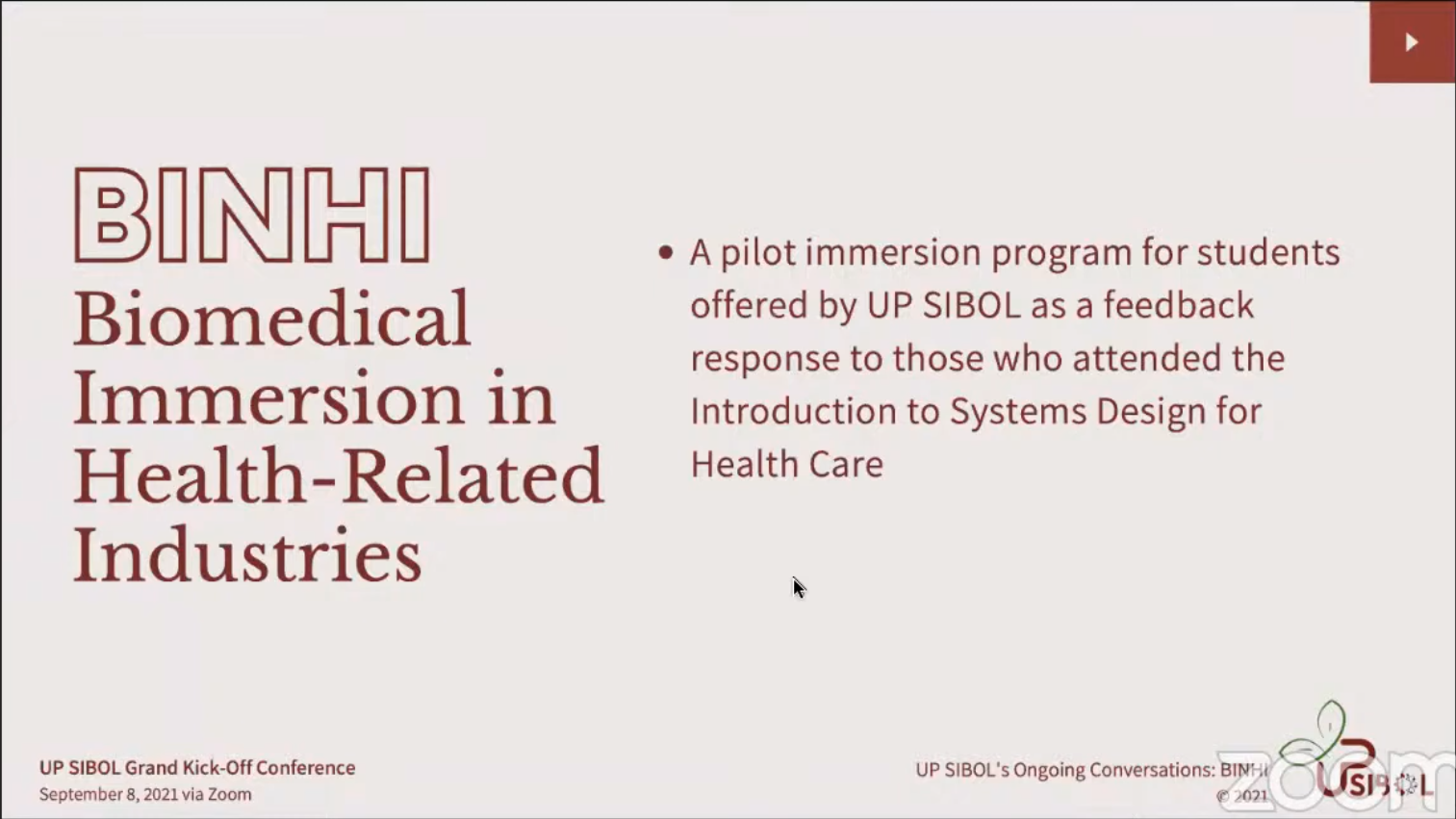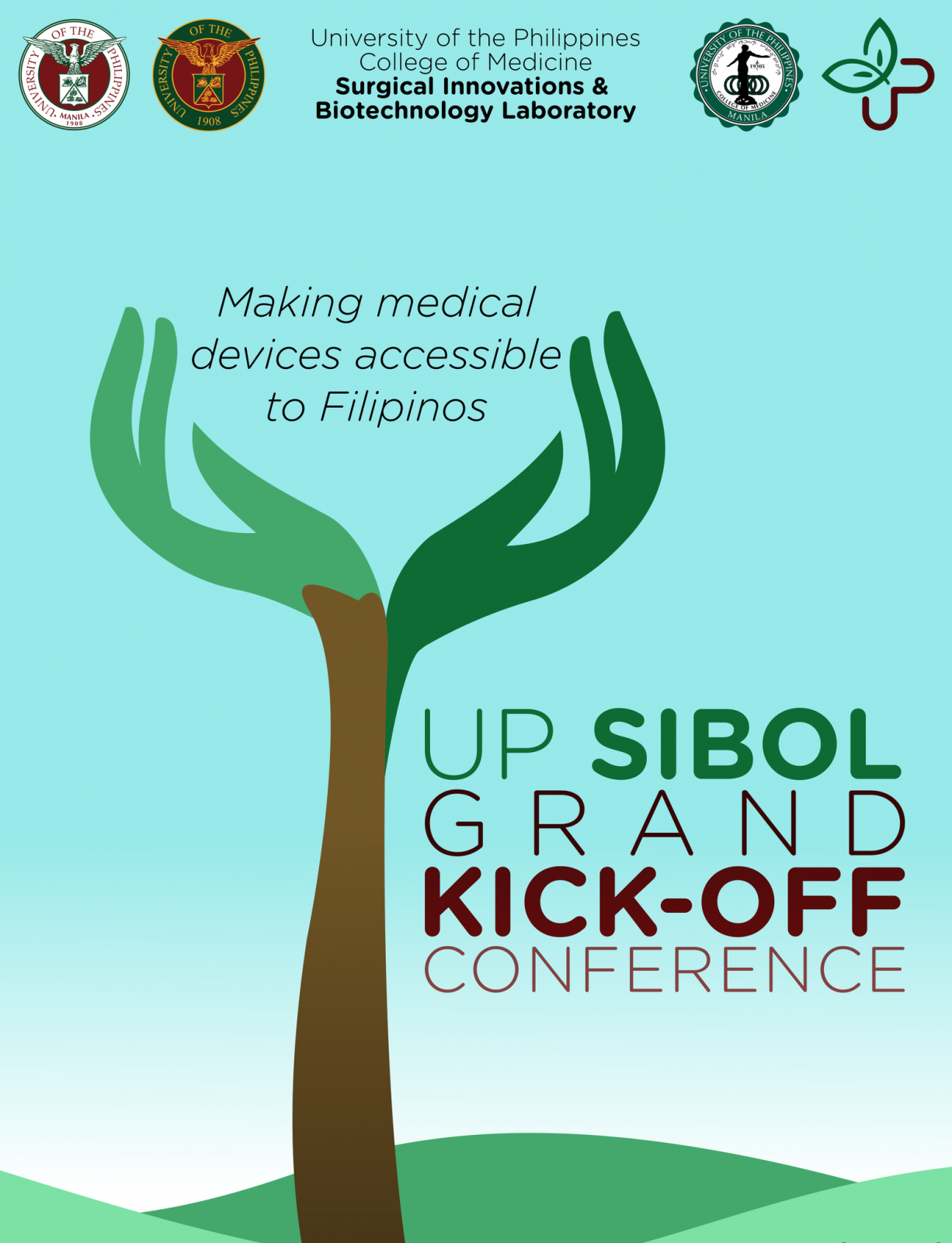
An immersion program for students interested in health-related industries was one of the programs discussed at the formal and virtual launching of the UP Surgical Innovation and Biotechnology Laboratory (UP SIBOL) on Sept. 8.
Prof. Roxanne de Leon of the College of Engineering – Electrical and Electronics Engineering Institute (COE-EEEI) said SIBOL is currently piloting an immersion program for students called Biomedical Immersion in Health-Related Industries (BINHI). At BINHI, students can participate in SIBOL’s current projects and “learn theoretical knowledge and practical skills in health research, experimentation, scientific communication, and implementation.”
BINHI is slated for the first semester of AY 2021-2022 and currently has 20 students from different undergraduate and graduate courses of UP Diliman (UPD) and UP Manila (UPM).
The launch of UP SIBOL also included presentations of its history from program leader Prof. Edward Wang, M.D.; COE’s participation and plans in relation to the program according to COE Associate Dean Gerald Jo Denoga, Ph.D.; and a presentation on the startup incubation facilities available at the UPSCALE Innovation Hub at UPD.

Department of Science and Technology (DOST) undersecretary for research and development, Rowena Cristina L. Guevara, encouraged all those present to consider partnerships with other universities that are also doing biomedical device research.
UP SIBOL is the umbrella program responsible for the invention of many of the biomedical devices co-created by UPD engineers and scientists in response to the COVID-19 pandemic in the last year. It is the state university’s center for local innovation of surgical devices adapted to the health needs of Filipinos.
It is implemented by the UPM College of Medicine and the Philippine General Hospital, in partnership with experts from COE.
Among the devices created under SIBOL is a powered air-purifying respirator currently being developed at the Department of Mechanical Engineering; SaniPod, a disinfection cubicle of personal protective equipment worn by healthcare workers; and MyBESHIE, a robot that “enables a person who is physically present in one location to mimic some of the aspects of being present at another physically remote location,” such that a doctor can remotely “treat” a patient through the robot as if s/he were physically present.
In closing, DOST-PCHRD executive director Jaime C. Montoya said SIBOL proved that Filipinos are “not only capable of producing quality innovation, but that their products are also capable of adapting to the demands of the times.”
In a related development, DOST Secretary Fortunato T. dela Peña disclosed in a July 31 Manila Bulletin report that SIBOL recently secured funding from the Department of Science and Technology-Philippine Council for Health Research and Development (DOST-PCHRD).
Dela Peña said the program is expected to increase the capacity of clinicians and surgical device innovation researchers and become a premier hub for surgical device innovation research and projects.

